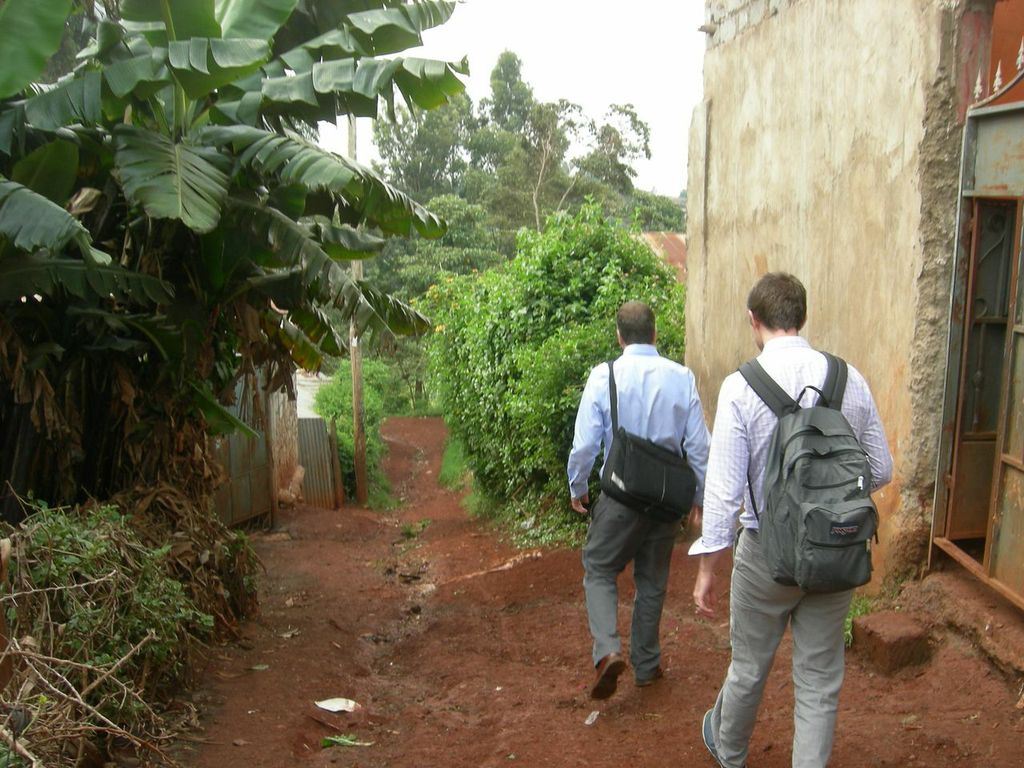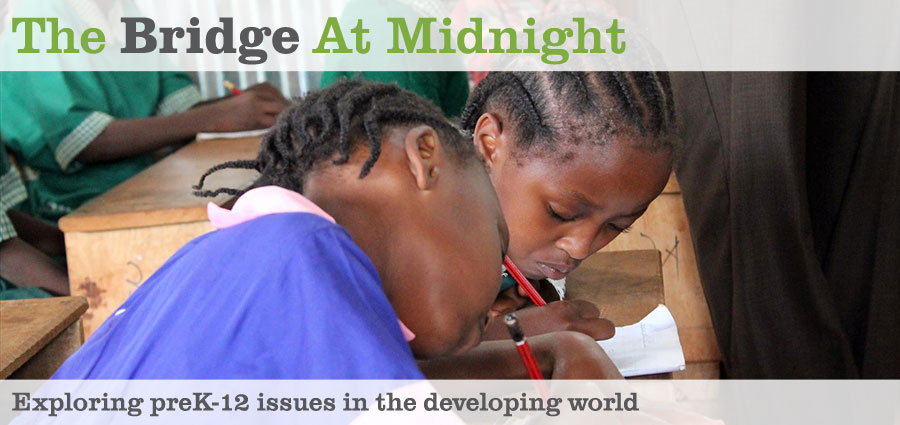Posted: April 1st, 2014 | Author: Michael Goldstein | | 4 Comments »
Tony Wagner is the keynote speaker. I listened while eating a bunch of muffins. Now I need more coffee.
Wagner is affiliated with Harvard Innovation Lab. The i-lab generously hosted our Bridge’s Boston office for our first 6 months, so we’re fans of Tony by extension. He’s a popular author. Here’s his recent book, The Global Achievement Gap.
Wagner (my notes are always riddled with errors, this is the gist):
Knowledge is free. It’s on every device. It used to be teachers had corner on market of knowledge. You had to go through teachers to get it. The more knowledge you had, the more value you had in the marketplace. No longer true.
What is a teacher for? How do you add value in marketplace, if next guy will just learn what needs to be learned, just in time?
What do kids need, if knowledge can just be looked up? Wagner says: Read the rest of this entry »
Posted: April 1st, 2014 | Author: Michael Goldstein | | No Comments »
Hi there,
I’ll be posting my notes from sessions, here at the IFC conference in San Fran.
IFC’s goal:
This year’s theme, Rethinking Education, Shaping the Future, will highlight how technologies, applications, and innovations in education delivery and results measurement are giving us Read the rest of this entry »
Posted: March 27th, 2014 | Author: Michael Goldstein | | No Comments »
People argue about this a lot. In Kenya our sense is that parents tend to always want more rigor. That leads to a question of “what are young kiddos capable of understanding?” Enter Dan Willingham, our favorite cognitive scientist, even though he comes from University of Virginia:
But the history of developmental psychology shows that the age at which children can reach cognitive milestones depends in no small part on the cleverness of the methods used to measure their ability. Perhaps younger students could understand evolution under the right circumstances. A new study (Kelemen et al, 2014) indicates that’s so.
Researchers tested children aged 5 through 8. Kids heard a story about pilosas, fictional animals whose survival was threatened when their food source, insects, started to live below ground in deep, narrow tunnels. Pilosas have trunks which might be wide or narrow. The story went on to explain that in Read the rest of this entry »
Posted: March 17th, 2014 | Author: Michael Goldstein | | No Comments »
One of my mentors, Tom Loveless of Brookings, showed that Shangai’s scores on the PISA exam were inflated.
But journalists and pundits will focus on the results from one province, Shanghai, and those test scores will be depicted, in much of the public discussion that follows, as the results for China. That is wrong.
The PISA people tried to dodge him, so Read the rest of this entry »
Posted: March 3rd, 2014 | Author: Michael Goldstein | | No Comments »
Our friend Patrick, teaching in Namibia, writes:
Today we read the first chapter of Chinua Achebe’s Things Fall Apart in each of my 12th grade classes. Things Fall Apart is one of the most well known novels by an African author and is widely read in US schools, let alone African schools.
It’s also the only novel that my school has in abundance… there is not a single other work of fiction- in English- for which we have multiple copies (save a few ‘English literature anthologies’). And it’s one of the very few novels that the Ministry recommends for reading at the Senior Secondary level. So I thought we’d work our way through the book this month.
Well it’s quite apparent that my learners are not all too interested in the book. Read the rest of this entry »
Posted: February 28th, 2014 | Author: Michael Goldstein | | No Comments »
From the Economist:
It is now more than ten years since charges for state primary schools in east Africa’s biggest economy were abolished by law. Yet it is an open secret that education is not truly free. In fact, fees are rising. Dorcas Mutoku, a policeman’s wife whose two sons attend a public primary school in the capital, Nairobi, has found that levies have simply been renamed. She has to find the equivalent of $35 for a one-off “signing-on” fee, and pay almost as much again for admission fees. End-of-term exams, uniforms and books cost at least another $10 per child.
Read the whole thing here.
Posted: February 27th, 2014 | Author: Michael Goldstein | | 3 Comments »

Geordie and Sean on the way to visit an Academy.

Steep. Read the rest of this entry »
Posted: February 5th, 2014 | Author: Michael Goldstein | | No Comments »
Over at the Marginal Revolution:
Is any economist doing more important work with greater potential for real improvement in the lives of millions than Karthik Muralidharan?
Why? Read here.
Posted: January 26th, 2014 | Author: Michael Goldstein | | No Comments »
What does it cost for an expat to live in Kenya?
Depends on a lot of factors of course, but my colleague Lia gave some estimates:
-Housing in Kilmani neighborhood for a single person is about $400/month plus $50 utilities.
(Obviously can spend a lot more. At the very high end, a 5 bedroom very modern townhouse in a gated community in Karen would be $3400/month). Read the rest of this entry »
Posted: January 23rd, 2014 | Author: Michael Goldstein | | No Comments »
Bill Gates predicts:
I am optimistic enough about this that I am willing to make a prediction. By 2035, there will be almost no poor countries left in the world. (I mean by our current definition of poor. Specifically, I mean that by 2035, almost no country will be as poor as any of the 35 countries that the World Bank classifies as low-income today, even after adjusting for inflation.)
Almost all countries will be Read the rest of this entry »



